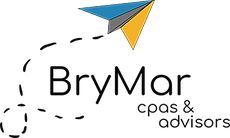Rethinking Your Firm: A Strategic Guide to Modern Accounting Workforce Models
The Urgent Need for Change
The accounting profession is at a crossroads. High turnover, rising salaries, and a shrinking talent pool are making it harder than ever to maintain a stable, high-performing in-house team. Recent statistics indicate that 83% of senior leaders reported an accounting talent shortage in 2024, and the workforce has 340,000 fewer accountants than it did five years ago. Replacing a staff member can cost as much as 50–60% of their annual salary, and that’s before you even think about the operational disruption and loss of institutional knowledge.
Talent, and all the issues surrounding it, is one of the biggest problems that a lot of firms are facing… figuring out how to adjust to the new workforce, the new opportunities, the new challenges that it brings is pretty enormous.”
Dan Hood
| Editor-in-Chief
Rethinking your workforce strategy is no longer optional; it’s a necessity for long-term success.
This guide is designed to help you rethink your workforce strategy and leverage the power of outsourcing and fractional accounting with practical advice, real-world examples, and actionable steps to help your firm thrive.
In This Guide...
Section I:
Understanding the Talent Crisis
CPA firms are facing a perfect storm of workforce challenges thanks to three main trends:
Talent shortage
The pipeline of new accounting professionals has thinned. In fact, the workforce has seen a reduction of 340,000 accountants compared to just five years ago, and that’s compounded by 75% of active CPAs approaching retirement.
This demographic shift, coupled with increased competition from other industries, has left many firms struggling to fill vital roles. Nearly 640 U.S.-listed companies have flagged accounting staff shortages as a material weakness in their operations. Rizza De Guzman, lead director for firm client services and management advisory committee alignment officer at Scrubbed, understands the concern. She recently noted, “From my perspective, the most significant pressure is the increasing mismatch between the demand for skilled accounting professionals and the supply. We all know nowadays that there is really a decreasing supply of accounting professionals.”
High turnover
Turnover rates are a persistent concern, with one in six accounting firms grappling with an annual turnover rate of more than 20%. This churn hits the bottom line, with the direct costs of replacing a staff member ranging from 50% to 60% of the employee’s annual salary.
Rising salaries
The demand for skilled accountants is driving up compensation, with accounting managers now commanding salaries of $173,000 and rising. The difficulty in finding experienced professionals remains the biggest challenge for many firms.
The impact on your firm is real: recruitment costs, operational disruption, and limited access to specialized expertise. It’s no surprise that CPA firms are beginning to take a closer look at their staffing strategies.
Section II:
The Evolution of Accounting Teams
The conventional in-house staffing model, while historically effective, often struggles to provide the flexibility and scalability required in today’s unpredictable economic climate. It can limit a firm’s ability to quickly scale up during peak seasons or access highly specialized expertise without significant, long-term overhead.
Client needs are also evolving as more clients opt for project-based engagements over traditional recurring engagements. This highlights the need for more flexibility than in-house teams are used to.
As a result, the days of relying exclusively on full-time, in-house staff are fading. It’s time to rethink in-house accounting, and firms are increasingly turning to hybrid, outsourced, and fractional models to meet their workforce needs.
Hybrid teams
Outsourced and fractional models
Section III:
The Core Value Proposition: Why Now is the Time to Adapt
Embracing an outsourced or fractional model offers a compelling array of benefits that address the needs of modern CPA firms:
Agility and scalability
Outsourcing allows you to effortlessly expand or contract your team in response to client demands, seasonal fluctuations, or new service line opportunities. This eliminates the need for reactive hiring or difficult downsizing.
Access to expertise
Tap into Specialized Expertise
You don’t have to have every expert in-house—and it may not make sense to even try to hire internally for every specialty. When you outsource, you gain access to experienced professionals who are up to date on the latest regulations, tools, and best practices. Firms like Scrubbed offer dedicated teams who understand the nonprofit landscape and can help you navigate complicated financial challenges.
Cost optimization
Enhanced stability and retention
Focus on core competencies
Operational efficiency and risk mitigation
A major benefit of outsourcing is the opportunity to streamline financial processes, improve reporting accuracy, and bolster compliance efforts, even during periods of rapid change or growth.
| Criteria | Traditional In-House | Outsourced and Fractional |
|---|---|---|
| Cost | Higher: Full salaries, benefits, recruitment, training | Lower: Pay for expertise when needed, reduced overhead |
| Scalability | Limited: Difficult to expand or contract quickly | High: Easily scale up or down based on demand |
| Access to Expertise | Restricted to available internal talent or expensive hiring process | Broad: Access to diverse top-tier specialist professionals |
| Talent Retention | Lower: Susceptible to industry-wide turnover | Higher: Stable teams with impressive retention rates |
| Flexibility | Less agile, rigid structures | More agile and adaptable to evolving firm and client needs |
Section IV:
How to Build More Flexible Teams
As you’ve seen, a fractional professional or outsourced accounting team can significantly improve your CPA firm’s efficiency and client satisfaction. However, you need to think strategically to ensure you choose the most effective partner to enhance your firm’s capabilities.
The first step is to Identify areas where your firm could benefit from additional support, particularly in those areas where your in-house team is stretched thin or lacks specialized expertise. Typical tasks include routine bookkeeping, payroll processing, specialized tax consulting, and financial due diligence.
From there, you’re looking to choose a partner with the required expertise in your industry and service lines who also meets your standards for quality and data security. Selection criteria and considerations include:
Expertise and specialization
Compliance and regulatory knowledge
Technology and tools:
Data security and risk management:
With sensitive financial information at stake, robust data security measures are non-negotiable. Ask your potential partner to explain the data protection protocols they have in place to safeguard your clients’ confidential information and how errors and security issues will be handled. Prioritize firms with a strong commitment to data security and client confidentiality.
Risk management may also be something you’d like to consider for your clients. A strong outsourced partner can help you identify risk, conduct due diligence, and implement mitigation strategies for your clients.
Scalability
Consider the outsourced firm’s capacity to scale its services as your CPA firm grows or when working with clients who have varying needs. Scalability ensures flexibility and allows your firm to adapt to changing demands seamlessly, bringing on additional support when you need it and scaling back when you don’t, with no impact on quality.
Reputation and references
Research the outsourced firm’s reputation within the industry. Seek client references and testimonials to gauge their reliability and performance. A positive track record with other clients whose size, approach, or specialization is similar to yours will indicate their ability to deliver high-quality services consistently.
Communication and collaboration
Look for partners who align with your firm’s values and communication style. Successful relationships are built on trust and collaboration. Transparent, timely, and comprehensive communication is essential to building that trust as well as keeping on top of workloads.
Cost structure
Cultural fit and geographic location

Case Study: BryMar CPAs and Advisors
Section V:
Making Outsourcing Work
Outsourcing is not a set-it-and-forget-it solution. As Dan Hood puts it, “There’s no question that this involves some rethinking and some reorganization and it’s not necessarily a light lift.” But it is worth the effort.
For CPA firms, the real value of working with external teams comes from treating them as an extension of your own so that they can provide tailored support and insights to improve your practice. The most successful firms recognize that building a strong, collaborative relationship with outsourced partners is just as important as selecting the right provider.
Tips for strengthening the relationship:
Start by making sure your external team feels included
Regular communication is key
Create opportunities for informal interactions
Virtual coffee chats or team-building activities help your teams connect on a personal level, not just a professional one. And don’t forget to celebrate successes together. Recognizing wins, big or small, helps build morale and reinforces the value of your partnership.
Scrubbed’s Rizza De Guzman highlights the significance of trust and quality in your relationship with an outsourced partner. “It’s not just about cost,” she says. “It’s also about building capacity without compromising quality.”
For more insight into choosing a partner, working with your outsourced team, and measuring success, check out our CPA services FAQ.
Section VI:
The Future of Accounting Teams
The accounting profession is expected to continue evolving toward greater specialization and value-based services. Firms will increasingly rely on niche experts and advanced technology to deliver specialized services to clients.
| Greater specialization | Integration of technology and AI | Flexible models as core strategy |
|---|---|---|
| Firms will need to offer more specialized services to meet niche demands from clients. | Automation and AI will play a larger role in team structure and workflow. | Hybrid, outsourced, and fractional models will become central to firm strategy. |
I think the major shift is towards greater specialization and a more value-based approach to work,” she says. “Firms will increasingly rely on a mix of in-house experts, external consultants, and, of course, integrating AI or technology to deliver specialized services to clients. So, this requires firms to be more flexible in how they structure their teams and manage their workflow.”

Rizza De Guzman
Conclusion: The Time to Act Is Now
Ready to Rethink Your Accounting Workforce?
Schedule a free consultation to explore how Scrubbed can help you build a more agile, cost-effective, and high-performing team. Visit scrubbed.net or contact us to learn more.
